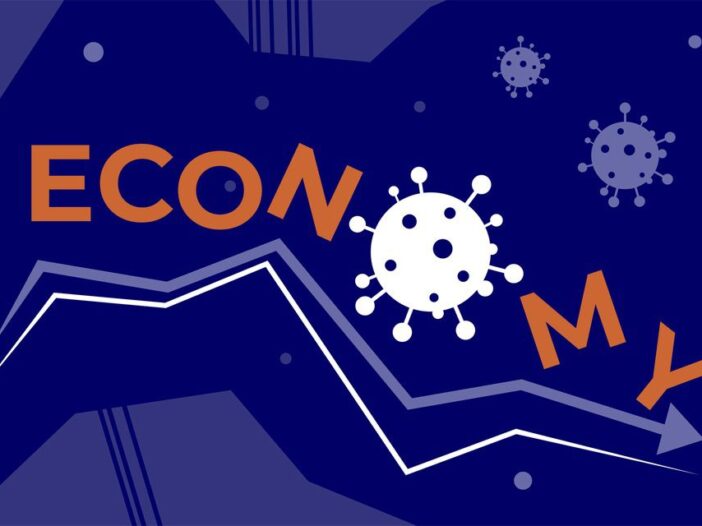We won’t be returning to normal after COVID-19, because normal has changed too much.
When it hit me.
What will the next recession look like? Because that’ll be far from normal too.
I know it feels like a distant problem. I mean, there’s a pandemic still on the loose, the recovery has barely begun, and I’m worried about the next downturn? It could be decades away based on Australia’s last recession.
But bear with me. I want to show you just how much the world has changed by pointing out how we’ll perceive the next recession, whenever it does come. And how we’ll perceive the risk of a recession before then too.
The current one has been rather unusual…
The recession got locked down too
Bankruptcies hit a 30-year low in Australia. Unemployment barely rose in many nations round the world. Evictions and foreclosures fell thanks to moratoriums.
Heck, in the UK, not a single case of the flu has been discovered so far this year…
It’s been the best recession ever, if you measure by certain specific parts of the data.
Of course, it’s not over yet. Not by a long shot. But that’s not what I want to focus on today. I’m addressing something deeper and more profound.
You see, all this success in the face of disaster begs the question:
Why did we ever tolerate unemployment in the past?
Why were companies and businesses allowed to fail? Why weren’t there foreclosure moratoriums in 2008, when campaigns were calling for them? Why was there a European sovereign debt crisis when central banks can just print money and buy bonds? Why did the Asian Financial Crisis cause global contagion?
How can we comfortably weather the record-breaking plunges in GDP so comfortably compared to the past, by so many measures?
Why were any of us going to the office all these years, spreading germs? Why were we living in overcrowded cities? Why did we tolerate the flu?
Although it’s worth answering those questions, I’d be missing my own point. I’m talking about the future, not the past, because that’s what has changed.
The next time we have a recession, will politicians and central bankers stand by and watch unemployment rise? Will they warn that we can’t spend trillions on fiscal stimulus packages, bailouts and furloughs? Will they allow people to be evicted for not paying rent, or foreclosed for not paying mortgages?
You’d be a brave politician to argue that bad decisions should have consequences. It’s practically the job of a politician to save people from their own bad decisions these days.
Superannuation is to force people to save. Jaywalking stops them crossing the street until it is made safe to do so. Furlough prevents failing firms from firing workers they don’t need. Bailouts protect banks and other large businesses from bad investments.
Whatever could go wrong in the past cannot be allowed to go wrong in a pandemic. But why just in a pandemic?
Why allow failure and disappointment any other day if you can prevent it today?
Whatever answers politicians gave in the past will be swept aside in the future. Government debt fears, productivity sclerosis, incentives to do the right thing, moral hazard to do the wrong thing, and any other claims wielded in the past are now pins in the face of proof that government policies work. They really can stop unemployment, foreclosures, business closures and everything else.
At least, that’s how the world will see it after COVID-19.
[conversion type=”in_post”]
What changed to make our new world possible?
The enabling factor in all this is the same thing I blame for all of the world’s problems. I blame it for the housing bubbles, the productivity declines, the inequality and anything else you can point to which I don’t like.
It’s money printing.
Do I sound dogmatic? Consider this from the economist John Maynard Keynes…
‘Lenin is said to have declared that the best way to destroy the capitalist system was to debauch the currency. By a continuing process of inflation, governments can confiscate, secretly and unobserved, an important part of the wealth of their citizens. By this method they not only confiscate, but they confiscate arbitrarily; and, while the process impoverishes many, it actually enriches some. The sight of this arbitrary rearrangement of riches strikes not only at security, but at confidence in the equity of the existing distribution of wealth. Those to whom the system brings windfalls, beyond their deserts and even beyond their expectations or desires, become “profiteers,” who are the object of the hatred of the bourgeoisie, whom the inflationism has impoverished, not less than of the proletariat. As the inflation proceeds and the real value of the currency fluctuates wildly from month to month, all permanent relations between debtors and creditors, which form the ultimate foundation of capitalism, become so utterly disordered as to be almost meaningless; and the process of wealth-getting degenerates into a gamble and a lottery.
‘Lenin was certainly right. There is no subtler, no surer means of overturning the existing basis of society than to debauch the currency. The process engages all the hidden forces of economic law on the side of destruction, and does it in a manner which not one man in a million is able to diagnose.’
Nicolaus Copernicus wrote On the Minting of Money for the Prussian and Polish governments around 1525:
‘Although there are countless maladies that are forever causing the decline of kingdoms, princedoms, and republics, the following four (in my judgment) are the most serious: civil discord, a high death rate, sterility of the soil, and the debasement of coinage. The first three are so obvious that everybody recognizes the damage they cause; but the fourth one, which has to do with money, is noticed by only a few very thoughtful people, since it does not operate all at once and at a single blow, but gradually overthrows governments, and in a hidden, insidious way.’
Isaac Newton didn’t just sit under apple trees. He actually went to extreme lengths to prop up the soundness of England’s currency as Master of the Mint for 31 years. Let’s just say he took a hands-on approach with counterfeiters. The Bank of England’s new paper money made it tough.
I could go on of course. But the point is that printing money is profoundly bad, but in subtle ways. And yet, it keeps happening.
The Pandora’s box was reopened in the 2008 financial crisis with QE. Central banks bought government debt outright instead of doing so by targeting interest rates. It was a minor shift at the time. Today, it’s beginning to look like the old slippery slope.
The good news is that it takes quite some time for the bad consequences of money printing to emerge. At first, the effect is excellent.
People think they’re getting rich as house prices rise, commodity prices boom, shares go up and the government promises to rescue anyone from failure with its new found limitless financial means. If you vote for them…
But do you really think money printing is a panacea? Does anyone?
I just don’t think anyone is that dumb. We are merely too short sighted to care, yet. Or perhaps we think the absurdities will be reined in.
But here’s the underlying problem…
The shift is irreversible
That was Jim Rickards’ point, remember? We’re in a new normal now. Where government deficits don’t matter, legal contracts don’t matter, basic rights don’t matter, and the government can do whatever it wants. The dam is broken, there is no point pumping the water back in.
Our path is now towards the inevitable overdose. When governments go too far.
They spend too much money, requiring too much to be printed.
Or they intervene too much in the economy, destroying economic growth and productivity improvements. Who will invest when the government can close borders, control what people buy and put the economy into lockdown?
Or we might get both inflation and intervention.
Trying to convince an electorate of austerity now is a lost cause. The pandemic has provided the inflationists, Modern Monetary Theory believers, and interventionists with evidence that the immediate ends justify the means.
Political careers are all dead in the long run. What matters is what you can achieve during your run. And power dramatically increases that.
Just think of all the problems they’re going to try and solve now that there are no costs to the cost/benefit analysis of spending money. Climate change is high on the list, but it’s a bloody long list.
Why we use gold
I’ll tell you a secret that’ll surprise many long-time readers. I’m no fan of a gold standard. At least, not one imposed by a government.
It implies fixed exchange rates — something I see as a dangerous constraint. It’s a bit like sailing a ship without a keel. Floating exchange rates are a powerful force to keep the economy stable.
And yet, over and over and over again in history, when nations embark on the same money printing experiment we are now, the same thing keeps on happening. They return to a gold standard.
That’s after the turmoil of inflation of varying severity, of course.
But why peg money to gold?
The answer is that gold is the only thing that can put Pandora’s problems back in her box. It’s the only way to stop governments from overspending in the end.
And it’s where we are headed, after the inflationary bust we’ll experience too.
Until next time,
 |
Nickolai Hubble,
Editor, The Daily Reckoning Australia Weekend
PS: Our publication The Daily Reckoning is a fantastic place to start your investment journey. We talk about the big trends driving the most innovative stocks on the ASX. Learn all about it here.

